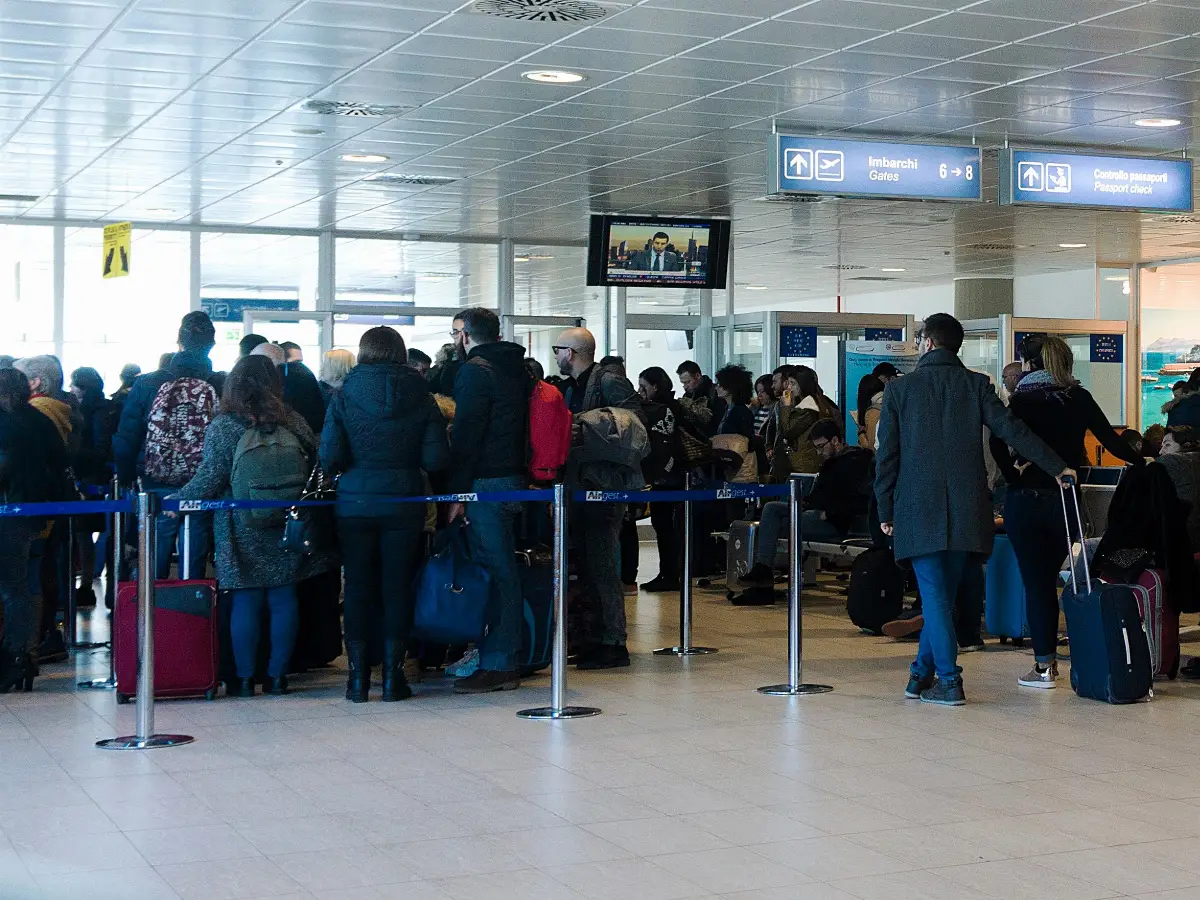
Cyberattack on check-in systems: chaos at EU airports, flights cancelled and cascading delays
Personnel forced to manual procedures: effects on turnaround, gate allocation and baggage security

Hundreds of passengers stranded in London, Brussels and Berlin. Collins Aerospace reassures: "We are working to resolve the problem"
An IT attack triggered chaos at European airports, causing the cancellation and delay of dozens of flights and leaving hundreds of passengers stranded. The target of the attack, which took place on the night between Friday and Saturday, 20 September 2025, was a key provider of check-in and boarding systems, the US company Collins Aerospace. The cyberattack disrupted automated systems, forcing airports to switch to manual procedures, which are much slower and less efficient.
London-Heathrow, Brussels and Berlin airports were among the hardest hit. Airport authorities confirmed that the problem rendered electronic check-in and baggage drop systems unusable, causing long queues and disruptions. Brussels Airport said the "major impact" of the failure led to the cancellation of at least four flights, including the service to Kigali and a KLM flight to Amsterdam, scheduled for the morning.
At London-Heathrow, although there were no direct cancellations, passengers were warned of possible "significant delays". Travellers were urged to check their flight status directly with airlines and not to arrive at the airport too early. Additional personnel were deployed to check-in areas in an attempt to mitigate the disruptions.
From Berlin, airport authorities confirmed that the technical problems, "due to a systems provider that operates across Europe," were causing "longer than usual waiting times". The airline easyJet said that while it was aware of the issue affecting some airports, it did not expect knock-on effects on its flight schedule for the rest of Saturday.
Collins Aerospace released an official statement confirming that the problem is a "disruption related to a cyberattack" that affected its Muse software in "some selected airports". The company clarified that the impact is limited to electronic check-in and baggage drop, and that manual operations can be used as an alternative. The company said it is working "actively to resolve the issue and restore full functionality" as soon as possible.
While cybersecurity experts focus on reconstructing the dynamics of the attack, the situation at the airports remains tense. The forced switch to manual processes is testing the resilience of airport infrastructure, with increased waiting times and the risk of further knock-on delays. Passengers are awaiting updates and recommendations from authorities and airlines.
AVIONEWS - World Aeronautical Press Agency